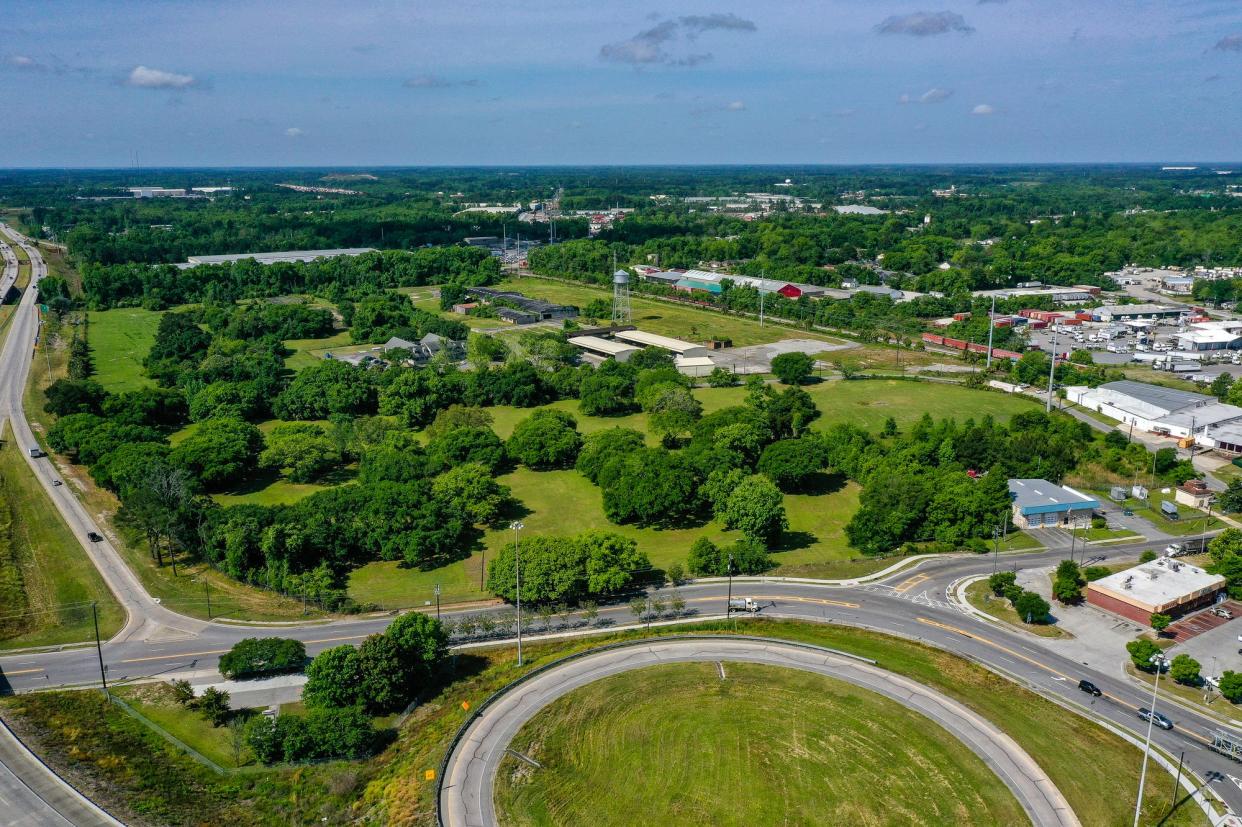A state authority for The Weeping Time approved by state officials. Here is what it will do.

- Oops!Something went wrong.Please try again later.
Nearly three weeks after Savannah commemorated 165 years since the Weeping Time, Georgia legislators unanimously passed a bill set to increase education and awareness of the state’s largest slave auction.
The bill, HB1425, will create a state authority dedicated to the “promotion and provision” of community and educational resources related to the Weeping Time and Gullah Geechee history. The entity, which will be known as the Weeping Time Cultural Heritage Corridor Authority, will comprise the Augusta Avenue corridor and also include the Woodville and Hudson Hill neighborhoods.
“It will be a way to bridge and bring people together,” said Carl Gilliard (D-Garden City District 162), the state representative who sponsored the bill.
The Weeping Time is the name for the largest slave auction in Georgia history, where 436 enslaved men, women and children were sold on March 2-3, 1859, at the Ten Broeck Race Course property three miles west of Savannah.
After passing the state House and Senate during the 2024 legislative session, the bill now awaits Gov. Brian Kemp's signature to be signed into law. Local activists expressed excitement for the authority's creation, touting the opportunity for expanded recognition and education on the Weeping Time history.
Various groups around Savannah ― Georgia Southern University's Gullah Geechee Cultural Heritage Center, Underground Tours, and the Weeping Time Coalition — provide educational and commemorative programs on the largest slave sale in state history. The commemorations earlier this month spanned an entire weekend. But the creation of the authority, which will have a five-person board appointed by local legislators, provides a body to unify the efforts of various groups, Gilliard said.
The legislation outlines powers for the authority that include raising money, purchasing property and contracting with the state. Gilliard said he hopes the authority will not only increase education, but also spur economic activity within the corridor with tours or festivals.
"It's a way to take it to the next level to bring people from all over the nation down to Savannah so those areas can reap the benefits," Gilliard said.
What Gilliard hopes for the future is the purchase and use of land at the former Ten Broeck Race Course, where the weeping time occurred, to have a state memorial such as a park and monument. Gilliard said the creation of the state authority is one step toward that goal.
Other activists involved with the Weeping Time share a similar desire. Maxine Bryant, director for the Gullah Geechee Cultural Heritage Center at Georgia Southern, said she wants to see a plan for the auction's site.
Patt Gunn, who operates Underground Tours of Savannah and is Gilliard's sister, said the idea of a state authority came from the creation of the federal Gullah Geechee Heritage Corridor. That corridor was created to "call attention to the historic and cultural contributions of the Gullah Geechee people," according to the National Park Service.
Gunn said she hopes the state authority would do the same for the story surrounding the hundreds of people sold 165 years ago. A day-one initiative for the authority would be to tackle education through forums and oral histories, Gunn said.
"I think the authority will be another opening for Savannah, the third and last port of entry for enslavement, to begin to have conversations on slavery, freedom and healing," Gunn said. "I think it's a wonderful opportunity for our city."
A first move for the Weeping Time Coalition, a grassroots organization to preserve the Weeping Time site, will be to lobby the authority to send an archeological report on the auction’s location to the state’s historic preservation agency. The report, done by Brockington & Associates, was commissioned by the City of Savannah to determine the actual location of the auction.
The report’s findings, which determined the site of the Weeping Time was not at the location of a potential Salvation Army on 2305 Augusta Ave., are disputed by the coalition, which filed a lawsuit against the city over the report in 2021. Rev. Leonard Small, one of the coalition's leaders, claims the Brockington report shows the proposed Salvation Army site should be historically preserved by the state.
Gilliard and others such as Small are lobbying Gov. Brian Kemp to come to Savannah for a bill-signing ceremony. If the legislation is signed by Kemp, Gilliard envisions an event to celebrate the authority's creation.
"I think you'll see the magnitude of how it brings Black and white communities, all communities together to commemorate the Weeping Time," Gilliard said.
Evan Lasseter is the city and county government reporter for the Savannah Morning News. You can reach him at ELasseter@gannett.com.
This article originally appeared on Savannah Morning News: A state authority for The Weeping Time approved by state officials.

